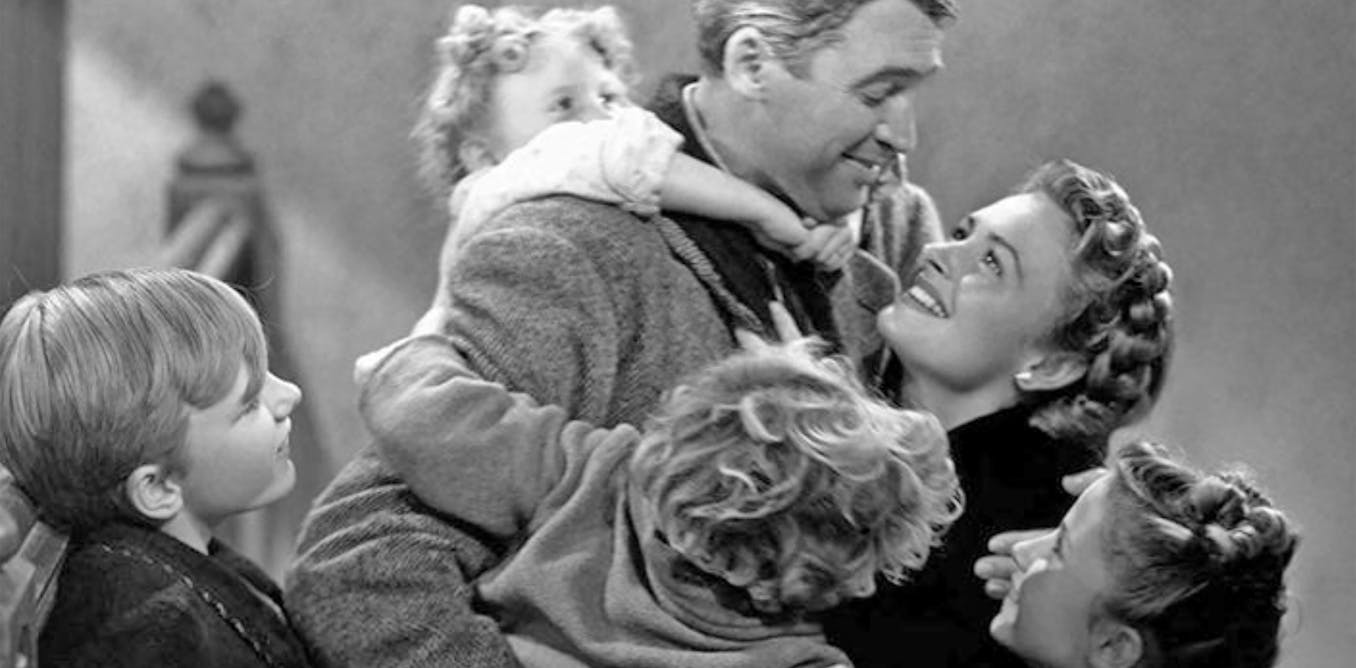Will Trump’s Tariffs Spur Recession? Four Chief Economists Weigh In
In a climate thick with uncertainty, President Trump’s tariff policies have dominated discussions about the future of the U.S. economy, leading many to fear an impending recession. The complexities surrounding these tariffs have created ripples in financial markets, prompting a range of opinions from leading economic experts.
As Trump positions his trade policies as a means of revitalizing American manufacturing, recent gestures towards de-escalating significant tariffs—such as the staggering 145% tariff on Chinese goods—have added layers of complexity to economic forecasts. How these decisions play out could have profound implications not only for job creation in America but for inflation and overall economic stability.
To dive into these pressing issues, the Wall Street Journal convened four chief economists from major financial institutions: JPMorgan, Moody’s, KPMG, and the Economist Intelligence Unit. Their insights provide a multi-faceted understanding of the risks and opportunities presented by the current tariff landscape.
Economic Uncertainty
The overarching theme among the economists is the prevailing uncertainty enveloping the U.S. economy. Markets react swiftly to changes in tariff policies, and this volatility makes it difficult for businesses and consumers to make informed financial decisions. The group discusses how the lack of clarity around trade policies is causing hesitance among investors, which could dampen growth and contribute to recessionary pressures.
Recession Odds
The economists weigh in on the likelihood of a recession, noting that while the risk is heightened, a definitive downturn isn’t certain. Factors such as consumer spending and global economic conditions are pivotal in determining the trajectory forward. Some economists assess the potential for a soft landing, while others express concerns about segments of the economy that may be more vulnerable to tariff-induced shocks.
Inflation Dynamics
Inflation remains a hot topic, particularly as tariffs have historically led to increased prices for consumers. The economists analyze the current inflationary environment and how sustained tariffs could fuel price hikes across various sectors. Their forecasts indicate that inflation dynamics will continue to evolve, affecting purchasing power and ultimately consumer behavior.
The Fed and Stagflation
The discussion inevitably shifts to the Federal Reserve’s role in navigating this turbulent landscape. The economists examine the implications of ongoing tariffs and inflation for monetary policy, contemplating scenarios of stagflation—a combination of stagnant growth and high inflation—as a troubling reality. They deliberate on how the Fed might respond to mitigate these risks while balancing the need for economic growth and price stability.
Looking Ahead
As the video draws to a close, the economists proffer their expectations for the future. Will Trump’s tariffs ultimately contribute to an economic renaissance through bolstered manufacturing? Or will the ramifications lead to broader economic malaise? The insights shared paint a landscape of both caution and opportunity, reflecting the multifaceted nature of today’s economic challenges.
With these expert analyses, viewers gain a clearer picture of the road ahead, marked by a crucial intersection of policy decisions and economic realities. As the U.S. navigates these turbulent waters, the dialogue around tariffs will be critical in shaping the economy’s future trajectory.
Watch the video by The Wall Street Journal
Video “Will Trump’s Tariffs Spur Recession? Four Chief Economists Weigh In | WSJ” was uploaded on 04/28/2025 to Youtube Channel The Wall Street Journal






































😂 so many bots on this one lol. Trust nothing you read.
The Wall Street Journal’s recent report suggesting an imminent risk of stagflation is not an objective analysis but a curated narrative designed to provoke fear. A close examination reveals serious flaws in both its method and its substance.
Firstly, the report lacks transparency.
The economists’ remarks are presented as isolated soundbites, heavily narrated over by the journalist, without disclosing the questions they were asked or the full context of their answers. This is not real economic analysis; it is editorial construction. By selectively framing the economists’ partial statements, the WSJ denies viewers the ability to judge the reasoning for themselves and instead funnels them toward a predetermined emotional conclusion: fear.
Secondly, the evidence for recession or stagflation is weak and speculative.
The report itself admits that recession odds, even after the increase, stand at 45% — a figure lower than in previous periods where no recession occurred. Inflation has been steadily declining from its 2022 highs, wages are moderating, and consumer demand remains stable. There is no self-reinforcing inflationary spiral, no sudden contraction in industrial output, and no mass unemployment. Yet the WSJ stitches together hypotheticals to build a worst-case scenario without showing credible causation.
Thirdly, the analogy to the 1970s stagflation era is deeply misleading — and the omissions are glaring.
The WSJ fails to explain that 1970s stagflation was primarily caused by external shocks: namely, the Arab oil embargo, where OPEC nations deliberately restricted oil supply to manipulate global prices. At that time, the U.S. was dependent on foreign oil, and energy shortages cascaded into every sector of the economy. Today, the U.S. is energy independent, global oil markets are more diversified, and there is no comparable external constraint on production. Crucially, the WSJ intentionally avoids stating that the fundamental drivers of 1970s stagflation — external supply shocks, systemic energy scarcity, and uncontrolled monetary policy — are not present today. Their failure to make this distinction clear is not an oversight; it is a calculated choice to foster unjustified parallels and heighten anxiety.
Fourthly, what we are actually witnessing is a natural adjustment phase in a transitioning economy.
Major policy shifts, such as trade realignment and manufacturing reshoring, naturally create periods of uncertainty and moderate inflation as supply chains rebalance. This is a normal and healthy stage of long-term structural improvement — not a signal of economic collapse. Temporary volatility is not equivalent to systemic failure, and responsible journalism should distinguish between the two.
Finally, the style and tone of the report are uncharacteristic of the Wall Street Journal’s traditional standards of moderation and rigor.
By selectively quoting experts, voicing over incomplete answers, and sprinkling loaded terms like “recession,” “stagflation,” and “chaos” without contextual analysis, the WSJ abandons its usual caution. This segment mirrors the tactics of click-driven media rather than the sober, fact-grounded reporting that readers historically relied on. It risks damaging the Journal’s credibility by promoting fear over facts.
In reality, the U.S. economy remains fundamentally sound, exhibiting signs of resilience, structural adaptation, and forward-looking growth. The American public deserves real economic journalism — not narratives engineered to manufacture fear.
Death is inflating, please wake up China sending so much currency ( blood )
More like stagflation of the late 1970s-80s (inflation, rising unemployment and low GDP). However, unlike that era, consumer debt today is much, much higher and the national debt is 36.5 trillion.
And on top of the tariffs for foreign imported products sold in stores, domestic manufacturers will also be paying more for the foreign raw materials and parts they need to produce goods.
When you tack on a 10, 25, 125, or even a 145% tax on people, they are going to pull back, hunker down, and seriously conserve their spending mostly because their paychecks and credit cards can only go so far. The rest is just wishful and delusional thinking which seems to be the Republican platform nowadays. The stupidity that comes out of Washington these days is absolutely mind boggling.
OMG the bots.
Trump will pass an executive order saying no recession.
It will only be liberation day, when Trump and his acolytes, "broligarcs" , are liberated from the White House. Until then, the lunatics who have escaped the asylum, will continue to wreak chaos and confusion. It begs the question, what have you done American voters and non voters. The final election numbers were so close, literally 1.4% between Trump and those who were otherwise voted for. Hardly a landslide victory, certainly not a mandate for what Trump is doing.
Can we get some interviews with people that actual work in the office?
The recession is over, if you didn't buy the dip….it is time.
Welcome to the trade playbook. These economists can't predict what happens to the market. God can't save them, neither is Technical Analysis or anything related to their research.
The market is opened and free in that we does not care what you think.
What's next question us water wet?
That's not how you spell Depression.
Please stop calling them "reciprocal" tariffs.
Last year we had 3% GDP rise. Now we are in recession.
These the same folks that said bidens recession wasnt a recession?
A Man, No Plan, No Panama!😬
Call it what it is: TRUMPFLATION.
The same idiots who called for a recession the last 8yrs a
ah if we had some way to know that electing the anti-education people would be bad..
Who voted for the tariffs that are wreaking havoc on our economy, the stock market, the bond markets, our retirement savings, as well as to small businesses? Who voted for seizing the Panama Canal, annexing Greenland by force if necessary, while making Canada a 51st state? Who voted for DOGE and Elon Musk making arbitrary budget cuts to government agencies that will endanger our health, our security, and our lives? Who voted for the attacks on Social Security, Medicare and Medicaid? Who voted for alienating our neighbors to the north and south as well as our long time European allies? Who voted for attacks on our judicial system and the rule of law? It is surprising that anyone still feels Trump is acting in their best interests and to make our country a better place. Nobody voted for Trump's chaos.
No expert needed, this is basic economics 101, what is occuring is going to force stagflation into reality. I can't understand how Trump passed through college with any degree, let alone one in economics. If this comes to fruition, it's all on him…
The American economy is booming. Just like Trump Steaks and Trump University.
How many saying there are bots in here are Republicans?
Im doing a survey.
Inflation fear is making some people spend more—and others less: https://on.wsj.com/4cMK5yY